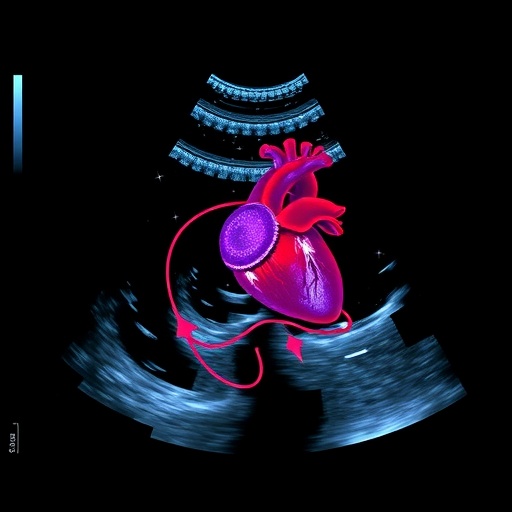Artificial intelligence (AI) is revolutionizing the field of echocardiography, fundamentally changing how cardiovascular assessments are performed and interpreted. As the use of AI continues to expand in this area, it promises not only to enhance diagnostic accuracy but also to increase efficiency and improve patient outcomes. The integration of advanced algorithms and machine learning techniques into echocardiography holds the potential to streamline processes that traditionally relied on human expertise alone. Researchers and clinicians alike are recognizing the transformative capabilities of AI technology, paving the way for a new era in cardiovascular care.
One of the primary ways AI is enhancing echocardiography is through automation. Routine measurements and calculations that once consumed significant time and resources can now be executed by AI systems with remarkable speed and consistency. For example, AI algorithms can automate the measurement of left ventricular ejection fraction, a critical parameter in assessing heart function. By relying on AI for these standard tasks, healthcare professionals can save time, thereby allowing them to focus on more complex and nuanced aspects of patient care.
Beyond simple automation, AI’s ability to recognize disease-specific patterns offers exciting possibilities for early diagnosis. Machine learning models have been trained on extensive datasets, enabling them to identify subtle markers of cardiovascular disease that may elude even seasoned clinicians. This capability increases the likelihood of timely interventions and ultimately improves patient prognoses. As AI continues to learn from new data, its pattern recognition will grow more sophisticated, potentially surpassing the limitations of existing diagnostic classifications.
Moreover, the application of AI extends to the discovery of new phenogroups—subtypes of diseases characterized by specific features. These phenogroups can provide valuable insights into disease mechanisms and may lead to more personalized treatment strategies. By categorizing patients based on unique characteristics identified through AI analysis, clinicians can tailor interventions to better suit individual needs, thus enhancing effectiveness and precision in treatment.
While the promise of AI in echocardiography is significant, the technology is not without its challenges. Developing trustworthy AI systems requires rigorous validation processes to ensure their reliability and safety in clinical settings. This necessitates extensive testing against established diagnostic standards and regulatory requirements, which can be a formidable undertaking. The process involves collaboration among researchers, technologists, and healthcare professionals to build dependable models that consistently produce accurate results.
Ethical considerations also play a vital role in the development and deployment of AI-powered echocardiography. Questions surrounding data privacy, algorithm bias, and transparency must be addressed to build public trust. For example, if an AI system learns from biased data, it may perpetuate disparities in care rather than alleviating them. Engaging with stakeholders, including patients, healthcare providers, and policymakers, is essential to ensure that AI technologies promote equitable healthcare solutions.
The implementation of AI in echocardiography is already unfolding in various clinical settings, showcasing its practicality and real-world impact. Hospitals and clinics are increasingly adopting AI tools to assist cardiologists in their decision-making processes, often reporting enhanced diagnostic accuracy and efficiency. Companies specializing in AI diagnostics are collaborating with healthcare organizations to integrate these technologies, leading to innovative solutions that improve the standard of care for patients with cardiovascular diseases.
The educational aspect of integrating AI in echocardiography cannot be overlooked. As this technology becomes more prevalent, it is crucial to train clinicians and technicians to work alongside AI systems effectively. Understanding the capabilities and limitations of AI will empower healthcare professionals to use these tools optimally while maintaining their critical analytical skills. Education programs focusing on AI literacy in medicine are already emerging, preparing the next generation of clinicians to embrace technological advancements in their practices.
Looking ahead, the future of AI in echocardiography is promising, with ongoing research and development aimed at further enhancing its capabilities. Innovations such as real-time machine learning, which could enable AI to learn from live echocardiographic data, are on the horizon. This advancement may provide clinicians with instantaneous insights and recommendations, revolutionizing how echocardiograms are conducted and interpreted.
Moreover, the exploration of AI’s role in telemedicine brings forth new dimensions for cardiovascular care. As remote monitoring becomes increasingly important, AI can analyze echocardiographic data transmitted from patients at home, providing timely alerts and recommendations to healthcare providers. This capability could significantly improve access to care and ensure that patients receive timely interventions from the comfort of their homes.
In summary, the integration of artificial intelligence in echocardiography signifies a transformative shift in cardiovascular care, presenting opportunities for improved diagnostics, enhanced efficiency, and personalized treatment strategies. As technology continues to evolve, the healthcare landscape will see further advancements that not only enhance clinical practices but also ultimately lead to better patient outcomes. However, careful attention must be paid to ethical considerations, validation processes, and educational initiatives to ensure that this revolutionary technology is implemented safely and equitably.
The intersection of AI and echocardiography will undoubtedly continue to unfold, offering new pathways for research, clinical practice, and patient care. As we forge ahead, the collaborative efforts of technologists, medical practitioners, and regulatory bodies will define the trajectory of AI in this vital area. The journey towards a future where AI-enhanced echocardiography becomes the norm, rather than the exception, is not just an aspiration; it is an impending reality that promises to reshape the future of cardiovascular health.
Subject of Research: AI in Echocardiography
Article Title: Artificial intelligence-enhanced echocardiography in cardiovascular disease management
Article References:
Myhre, P.L., Grenne, B., Asch, F.M. et al. Artificial intelligence-enhanced echocardiography in cardiovascular disease management.
Nat Rev Cardiol (2025). https://doi.org/10.1038/s41569-025-01197-0
Image Credits: AI Generated
DOI: 10.1038/s41569-025-01197-0
Keywords: AI, echocardiography, cardiovascular disease, machine learning, healthcare technology, diagnostics, automated analysis, pattern recognition, personalized medicine, telemedicine, ethics, clinical implementation.
Tags: advanced algorithms in echocardiographyAI algorithms for heart function measurementAI in echocardiographyAI-driven innovations in medical imagingautomation in heart disease diagnosisearly diagnosis through AI pattern recognitionefficient cardiovascular disease careenhancing diagnostic accuracy with AIimproving patient outcomes with AImachine learning in cardiovascular assessmentsrevolutionizing cardiovascular assessmentstransformative AI technology in healthcare





